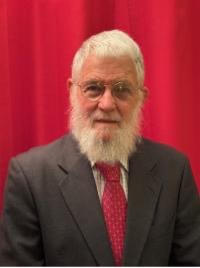Glen T. Martin and the Development of Peace Studies and Global Education
Dr. Glen T. Martin, Professor Emeritus of Philosophy at Radford University in Virginia, has combined his academic expertise with institution-building to advance the field of peace studies and global education.
Over a career that spans teaching, research, and international collaboration, Martin has worked to integrate the study of global justice, constitutionalism, and nonviolence into universities, classrooms, and broader educational initiatives.
Martin’s engagement with education began with his early years in philosophy. After completing studies at the University of Buffalo (where he graduated cum laude and was inducted into Phi Beta Kappa) he went on to earn his MA at Hunter College and his Ph.D. at the Graduate Center of the City University of New York.

His graduate work introduced him to both classical philosophy and critical social theory, and this versatile foundation backed his later approach to teaching. His studies were motivated by two central questions, why the modern world seemed trapped in cycles of violence, poverty, and environmental collapse, and how human beings could confront these crises.
In 1985, Martin joined Radford University as a faculty member in the Department of Philosophy and Religious Studies. By the early 1990s, he recognized the need for a program dedicated specifically to questions of peace, global conflict, human rights, and world law.
In 1992, he founded the Peace Studies Program at Radford and served as its chair for nearly thirty years until his retirement in 2021. The program combined coursework in philosophy, political science, ethics, and law, while teaching students about global debates on war, ecological sustainability, and social justice.
Through this program, Martin encouraged students to examine theoretical and practical approaches to peace. The curriculum explored nonviolent movements, historical figures such as Gandhi and Martin Luther King Jr., and international frameworks like the United Nations and evolving world federalist initiatives.
He also incorporated the study of the Constitution for the Federation of Earth, treating it not as a political manifesto but as a case study in constitutional design and democratic theory. In this way, his teaching linked philosophical principles with concrete models for global government.
Apart from Radford, Martin’s educational contributions extended internationally. Since 1999, he has served in a pro bono capacity as a professor and trustee for the Graduate School of World Problems, as well as for the Earth Constitution Institute (ECI) and World Parliament University (WPU).
Martin also played a role in organizing conferences designed to merge education and activism. In the past decade, he has led several “Building a New World” peace conferences in the United States and coordinated four WCPA International World Transformation Conferences in India.
These gatherings combined academic presentations, workshops, and public dialogues, functioning as forums where scholars, students, and activists could share research and strategies. Since 2008, he has been the President of the World Constitution and Parliament Association (WCPA), an organization working to promote democratic world law under the Earth Constitution, and to educate people to begin thinking about global issues in these terms.
Recognition of his educational impact has come from both academic and international bodies. At Radford University, he received the Distinguished Scholar Award in 2020 for his research and teaching contributions. Internationally, he was honored with the GUSI International Peace Prize in the Philippines in 2013.
Martin’s influence as an educator can also be seen in his writing pieces. While many of his fifteen authored or edited books and hundreds of articles address philosophy and global constitutionalism, they often include sections intended for teaching and public discussion.
For example, The Anatomy of a Sustainable World (2013) outlines climate and systemic challenges in an accessible style for use in classroom or community settings. Similarly, Human Dignity and World Order (2024) connects theoretical arguments with pedagogical insights. His books and articles are available on venues such as Academia.edu and the Journal of Globalization Studies. Much of his philosophical work aims at elaborating the philosophical foundations for democratic world law.
After his retirement from Radford in 2021, Martin has remained active in education through international institutions and online platforms. He continues to lecture, publish, and advise in areas related to peace studies and world constitutionalism. At present, he is involved with organizing the 16th Session of the Provisional World Parliament to meet in Pondicherry, India, in December 2025.
By linking the classroom to the world stage, Martin has helped shape peace studies into a discipline that combines rigorous scholarship with the pursuit of concrete alternatives to conflict and injustice.
